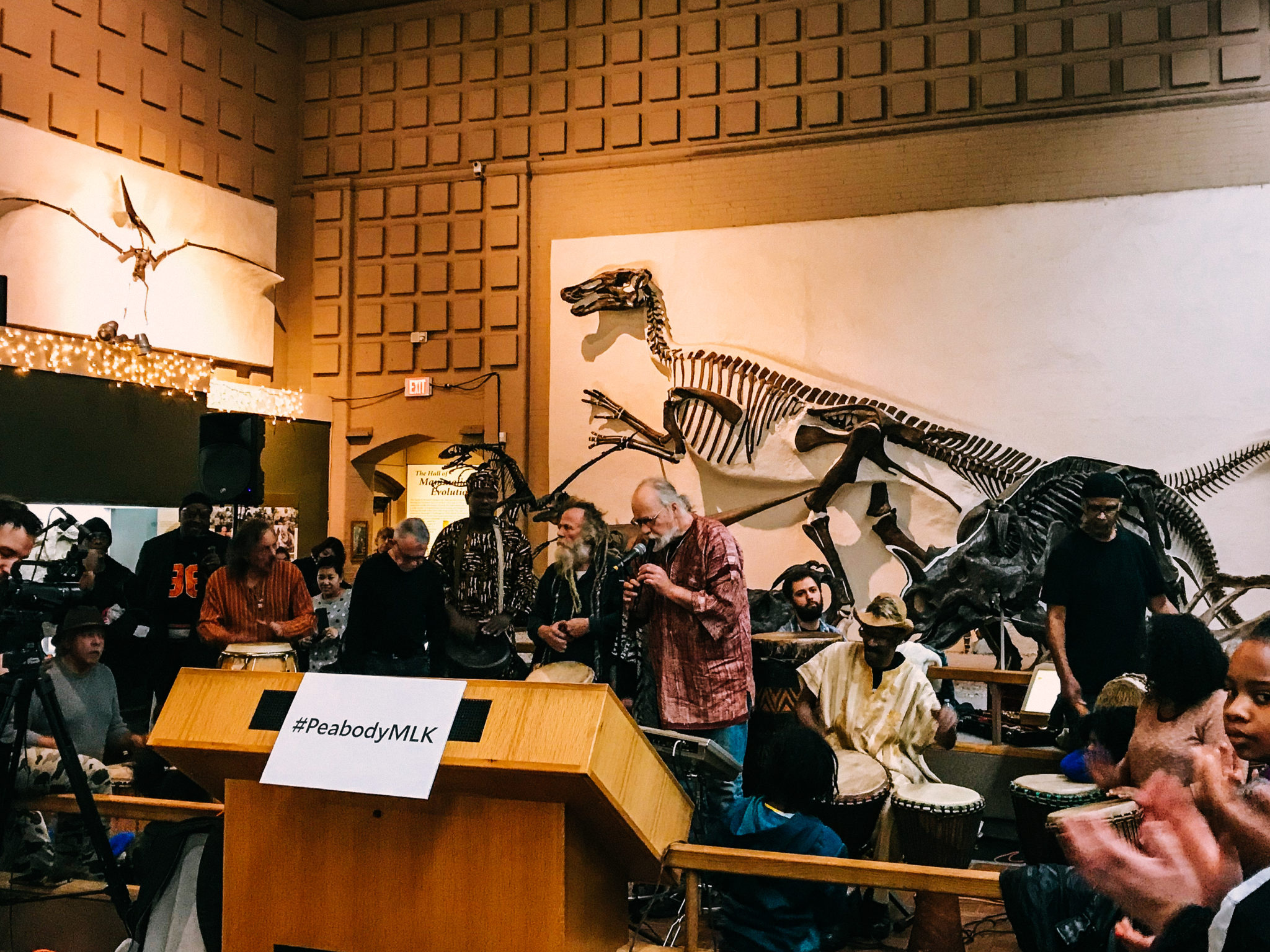
amyxiong
A total of more than 2,300 people gathered at the Peabody Museum on Sunday and Monday to honor Martin Luther King Jr.’s efforts to work toward social and environmental justice.
Free to the public and family-friendly, this year’s “Dr. Martin Luther King, Jr.’s Legacy of Environmental and Social Justice” at the Peabody was the 22nd annual iteration of the event. The two-day celebration offered multiple opportunities for the New Haven community to engage with a variety of artistic performances.
“Every day of the year, the Peabody is a place to come and reflect on the world we live in,” David Skelly, director of the Peabody, said. “Dr. King asked us to do this and to imagine a better world.”
The event was designed to provide a place for New Haven to come together to celebrate King’s legacy, Skelly said.
In celebrating King’s efforts, the event served as a gateway between the University and community, providing local organizations with a venue to share their work, said Kristi Fok, a member of the MLK Planning Committee and community educator at the Peabody.
The Peabody event also aimed to recognize that communities of color continue to be disproportionately affected by environmental hazards — from air pollution to water quality — as well as to communicate the important work that local community organizations are doing to address these issues, Motto said.
“Dr. King was a pioneer in helping the world see that resources and environmental conditions can uplift people if they are distributed,” Skelly said.
On both days, various music and dance groups performed at the museum’s Great Hall of Dinosaurs, with acts ranging from hip-hop to jazz to drumming.
Tenth grader Ashlyn Mallard, whose group performed a tap dance entitled “Brand New Day,” said she enjoyed performing at the Peabody and believed that it was important to honor King’s legacy.
In the drum circle finale led by percussionist and cultural music educator Michael Mills, the drum group invited children to join the group on the stage and provided them with extra drums and tambourines.
In halls adjacent to the performance groups, more than 15 booths were set up with activities for families and other attendees, according to Fok. These included a mock voting booth and an arts table for kids.
Connecticut People’s World, a local organization that runs a booth each year at the Peabody event, invited children to write and draw their dreams for making a better world, according to Lisa Bergmann, a volunteer at the event.
“We’re really lucky that the Peabody hosts this event every year, and I think it’s a really beautiful time to come together right now, especially in this political climate,” Bergmann said.
She added that she hopes students were able to reflect on King’s efforts and the collective action needed to carry his legacy forward.
While dozens were watching performances in the Great Hall of Dinosaurs on Monday, the Zannette Lewis Environmental and Social Justice Professional Poetry Slam was taking place on the third floor, in David Friend Hall. More than 15 individuals confronted issues of social and racial justice in their poetry.
The events also included a teen summit — where teens participated in discussions surrounding King’s work in social and environmental justice — and an art contest, Fok said.
“We hope that visitors from diverse backgrounds and interests can come together to learn from the museum and our community partners, be reminded that the legacy of Dr. King lives on, experience beautiful art, poetry and music, and be inspired to take action against injustice,” said Andrea Motto, the manager of public and youth engagement at the Peabody.
This year marks the 50th anniversary of King’s assassination.
Amy Xiong | amy.xiong@yale.edu







